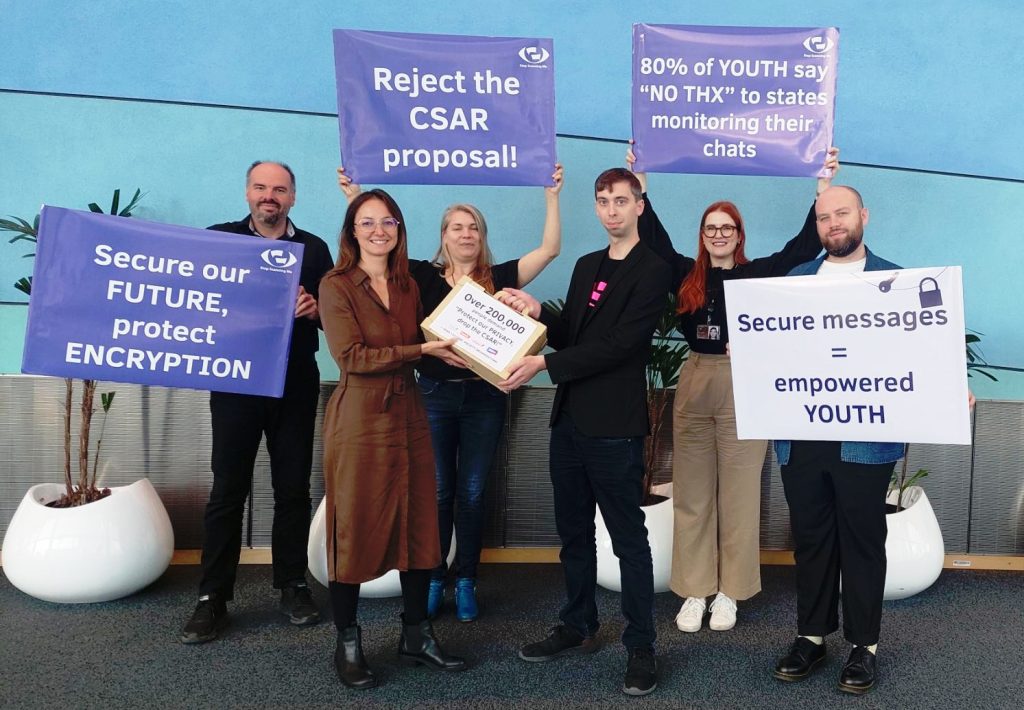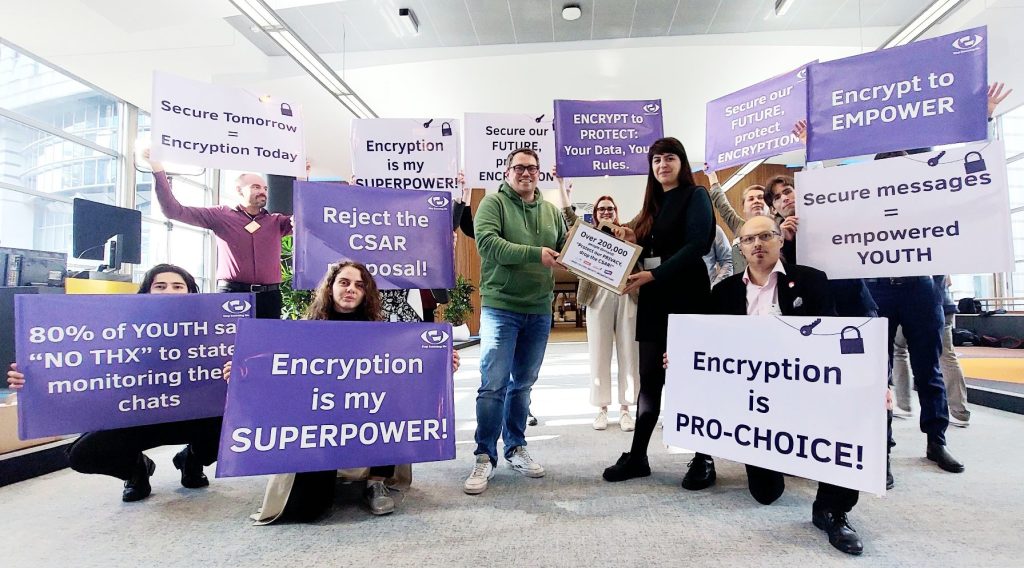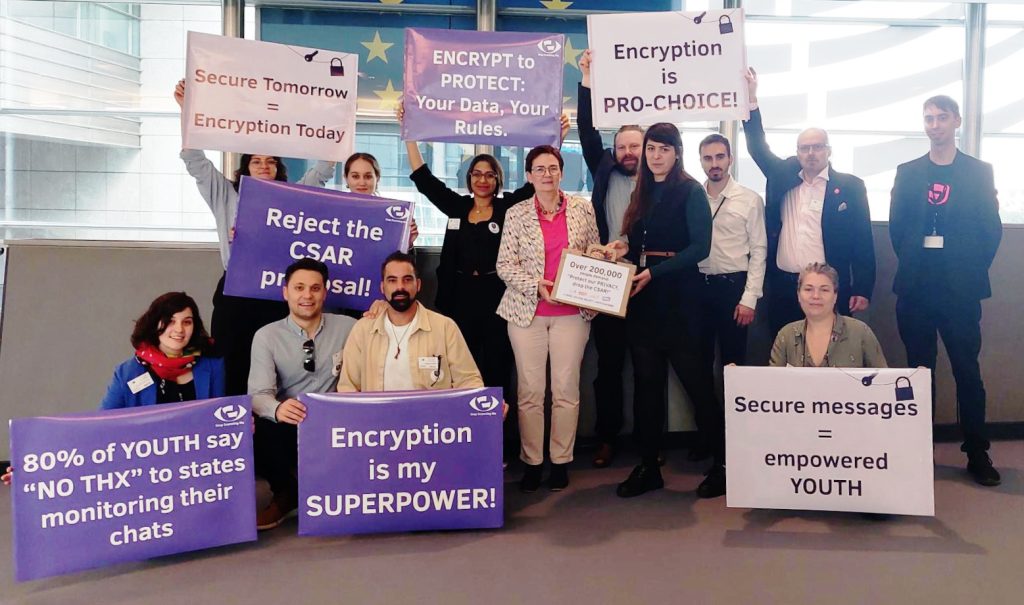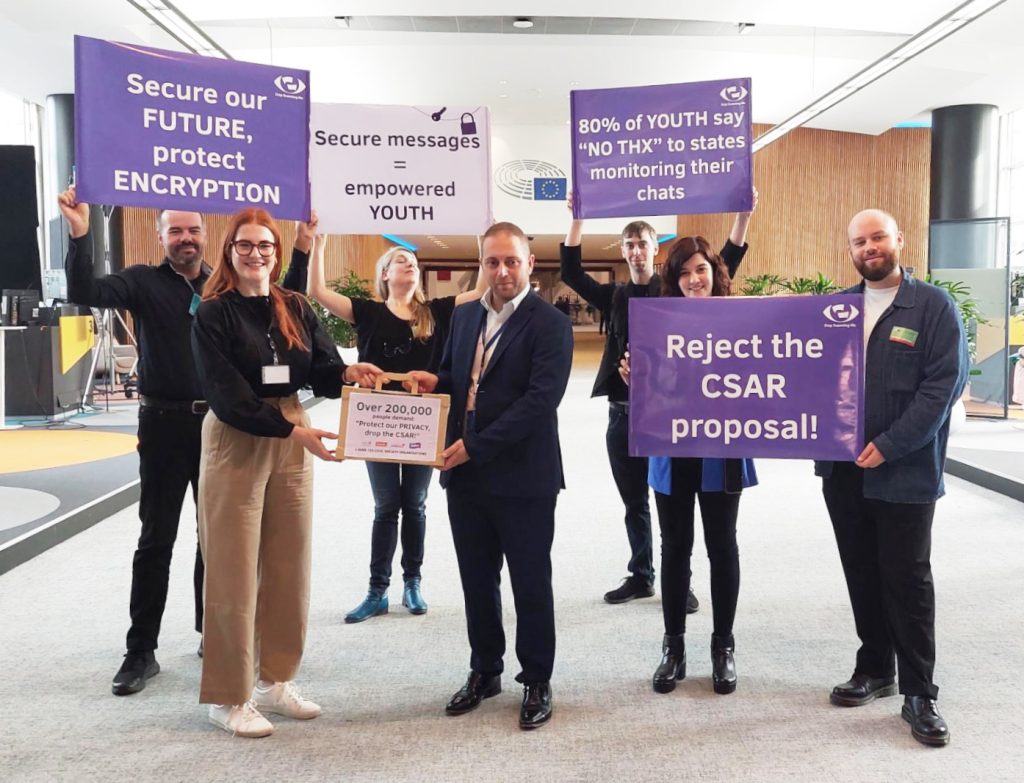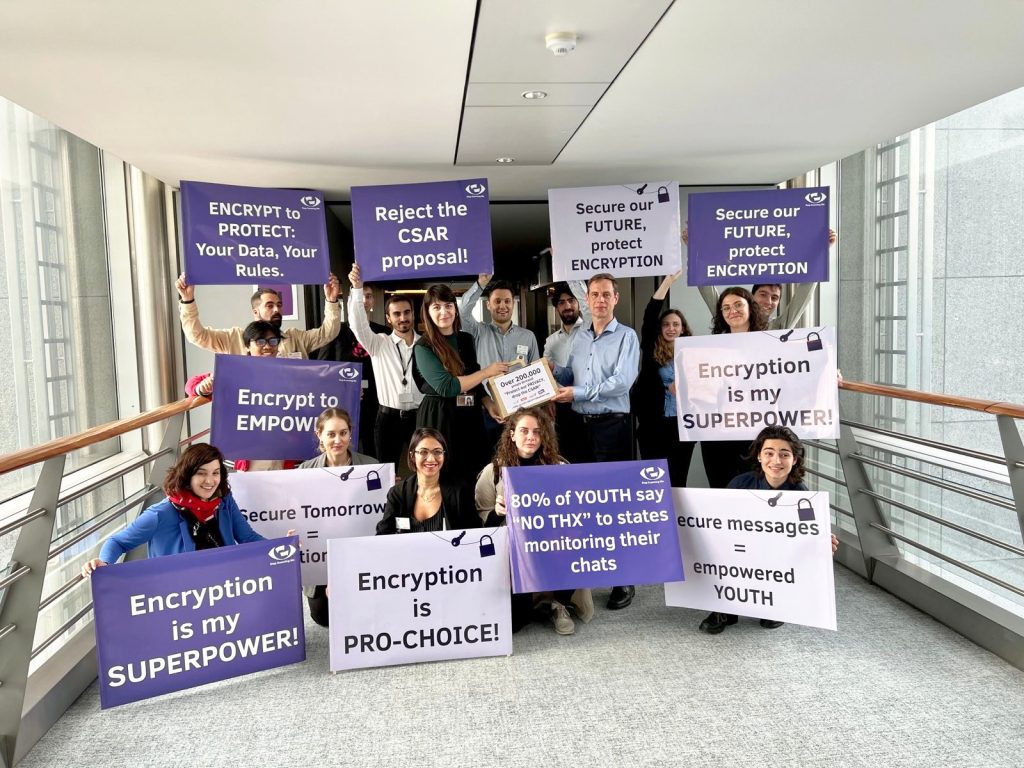Chat Control: What is actually going on?
In summer 2025, so-called “Chat Control” became a huge topic of public attention. This is because in a major vote planned for 13 or 14 October, EU governments will decide whether to endorse or reject a mass surveillance, encryption-breaking and anonymity-ending law: the EU CSA Regulation. However, there remain many democratic checks-and-balances in the EU lawmaking system that mean we still have a strong chance to stop measures that would amount to Chat Control.
Since summer 2025, one digital rights issue has broken out of the EU bubble and become a topic of conversation for influencers, lawmakers, and at family dinner tables alike. What is it? The proposal for a new EU law: “Chat Control”.
Due to its draconian measures, Chat Control has rightly captured public attention, and seen a lot of traction across social media. Many people have pointed out that it would particularly harm journalists, queer communities, parents sharing family snaps, lawyers and even the children it’s supposed to protect.
Luckily, there’s still lots we can do together to protect the EU from Chat Control, so keep reading to see how your voice can help!
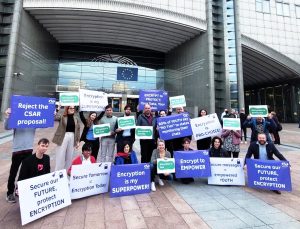
The law in question is the draft EU Child Sexual Abuse (CSA) Regulation. Since it was first put forward in 2022 by scandal-plagued former EU Commissioner Ylva Johansson, EDRi and our Stop Scanning Me campaign have called out the fact that despite the stated aims to find child abuse material online, the proposed measures are neither feasible nor legitimate.
What would the “Chat Control” bill do?
- Under the proposal, the private communications of innocent people would be scanned with unreliable AI filters just in case they’re spreading CSAM. This is textbook mass surveillance, and aside from being at odds with the principle of the presumption of innocence, it is also mathematically not very effective. The Commission claims that the scanning would be targeted, but we explain here why that’s not true.
- The proposal requires this to be done by end-to-end encrypted message services like WhatsApp and Signal. Technologist around the world have been crystal clear that this cannot be done without compromising the integrity of these services. It would be like deploying personalised spyware to millions of people’s devices. As well as being a cybersecurity nightmare (so bad that even intelligence agencies are warning against it!), the UN and the European Court of Human Rights have emphasised that undermining encryption would be a massive breach of everyone’s right to privacy.
- The proposal makes it likely that all digital communications services would require users to go through age verification. However, we’ve shown that all current age verification tools pose a threat to free expression, autonomy and privacy. As a result, such measures would risk systematic exclusion of people without digital identity documents, and could also mean the end of online anonymity. This would put a lot of people at risk: whistle-blowers, activists, people seeking reproductive healthcare and more.
In short, the negative impact of Chat Control on democracy would be unprecedented. And by legitimising these dangerous practices, the EU would be giving a signal to the rest of the world that there can be no privacy of digital communications.
Why is Chat Control a trending topic all of a sudden?
On 13 or 14 October 2025, there will be a vote on the CSA Regulation in the EU Council (the grouping of EU Member States’ governments). The bad news is that with this vote, EU countries are being encouraged to take an official position in favour of Chat Control.
The good news, however, is that the Chat Control bill still has several legislative hurdles to cross before it can become law. It hasn’t even reached final negotiations (aka trilogues) yet – and there’s a chance it won’t. This is because EU law contains a series of checks and balances to ensure proper democratic scrutiny of proposed laws, and many of our lawmakers are – thankfully – listening to the evidence.
The importance of the EU’s democratic counterbalances
One major check and balance is that the European Parliament – who will be a major player in any final negotiations – have a strong position that they agreed back in 2023. With agreement from across the political spectrum, the Parliament’s position ruled out mass surveillance, ensured encryption would not be compromised, and set a high bar against the over-use of age verification. This is really important, because if the Council decides on a bad position, we will be relying on the Parliament to protect us from Chat Control. However, with the Parliament historically less powerful in these negotiations, and the lead MEP hinting that he is considering a softer stance on breaking encryption, it’s more important than ever that the Parliament sticks to their position.
More good news is that even after 3 years of intense discussions, EU countries’ governments still can’t agree what to do. While certain pro-digital-surveillance countries like Hungary, Ireland, Spain and Denmark have unwaveringly supported the mass scanning and encryption-breaking measures, many other countries have been rightly alarmed. For example, Luxembourg, Austria, Germany and Poland have consistently raised their voices against Chat Control, and others such as the Netherlands, Slovenia, Finland, Belgium, the Czech Republic and Estonia have all taken either opposing or abstaining stances at various points.
Yet we also know that the European Commission’s Home Affairs Unit – a notorious and illegal lobbyist for its own proposal – has been pulling out all the stops to try to get EU Member States in the Council to agree to their plans. There are rumours that some countries, notably Germany, could be pressured to ‘give in’ to Chat Control – and so the October vote will be decisive.
What can you do right now?
This is the perfect time for people across the EU to make their voices heard. Members of the European Parliament need to hear our support for their position in case there are negotiations in the future. Even more crucially, EU Member State governments urgently need to hear that we oppose measures that would amount to Chat Control. Under European and international law, they have an obligation to oppose the CSA Regulation until it protects our rights, freedoms and security. The current Council text which is the subject of October’s vote could not be further away from that threshold.
Sign the petition of the Stop Scanning Me campaign and join thousands of people opposing the attack on our secure communication. As soon as our petition reaches a critical threshold, we will deliver it to decision lawmakers as we did in the past.

